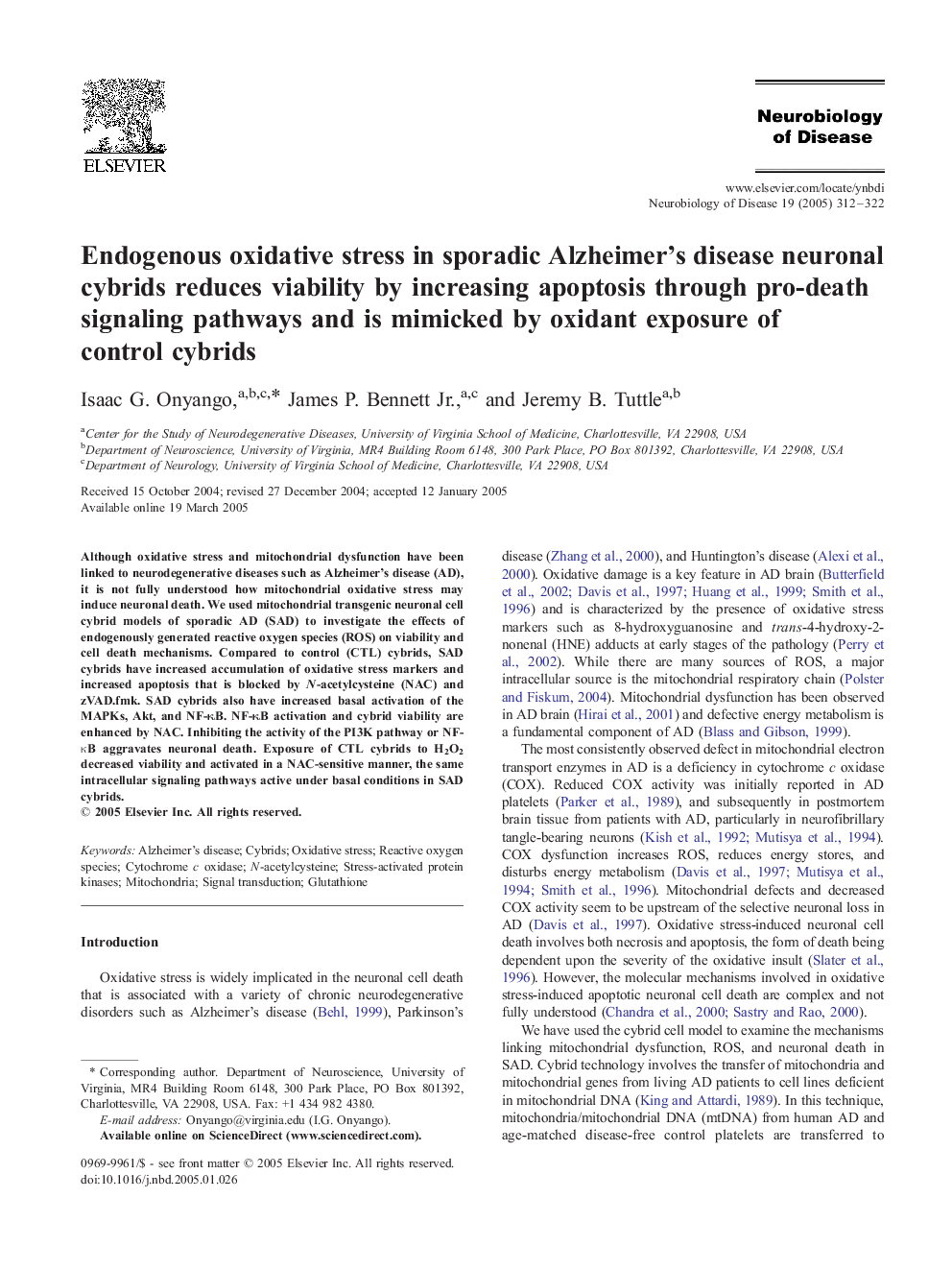| کد مقاله | کد نشریه | سال انتشار | مقاله انگلیسی | نسخه تمام متن |
|---|---|---|---|---|
| 9989747 | 1580764 | 2005 | 11 صفحه PDF | دانلود رایگان |
عنوان انگلیسی مقاله ISI
Endogenous oxidative stress in sporadic Alzheimer's disease neuronal cybrids reduces viability by increasing apoptosis through pro-death signaling pathways and is mimicked by oxidant exposure of control cybrids
دانلود مقاله + سفارش ترجمه
دانلود مقاله ISI انگلیسی
رایگان برای ایرانیان
کلمات کلیدی
N-acetylcysteine - N-استیل سیستئینAlzheimer's disease - بیماری آلزایمرOxidative stress - تنش اکسیداتیوCybrids - سایبریدcytochrome c oxidase - سیتوکروم سی اکسیدازMitochondria - میتوکندریاSignal transduction - هدایت سیگنالstress-activated protein kinases - کیناز پروتئین فعال استرسGlutathione - گلوتاتیونReactive oxygen species - گونههای فعال اکسیژن
موضوعات مرتبط
علوم زیستی و بیوفناوری
علم عصب شناسی
عصب شناسی
پیش نمایش صفحه اول مقاله

چکیده انگلیسی
Although oxidative stress and mitochondrial dysfunction have been linked to neurodegenerative diseases such as Alzheimer's disease (AD), it is not fully understood how mitochondrial oxidative stress may induce neuronal death. We used mitochondrial transgenic neuronal cell cybrid models of sporadic AD (SAD) to investigate the effects of endogenously generated reactive oxygen species (ROS) on viability and cell death mechanisms. Compared to control (CTL) cybrids, SAD cybrids have increased accumulation of oxidative stress markers and increased apoptosis that is blocked by N-acetylcysteine (NAC) and zVAD.fmk. SAD cybrids also have increased basal activation of the MAPKs, Akt, and NF-κB. NF-κB activation and cybrid viability are enhanced by NAC. Inhibiting the activity of the PI3K pathway or NF-κB aggravates neuronal death. Exposure of CTL cybrids to H2O2 decreased viability and activated in a NAC-sensitive manner, the same intracellular signaling pathways active under basal conditions in SAD cybrids.
ناشر
Database: Elsevier - ScienceDirect (ساینس دایرکت)
Journal: Neurobiology of Disease - Volume 19, Issues 1â2, JuneâJuly 2005, Pages 312-322
Journal: Neurobiology of Disease - Volume 19, Issues 1â2, JuneâJuly 2005, Pages 312-322
نویسندگان
Isaac G. Onyango, James P. Jr., Jeremy B. Tuttle,